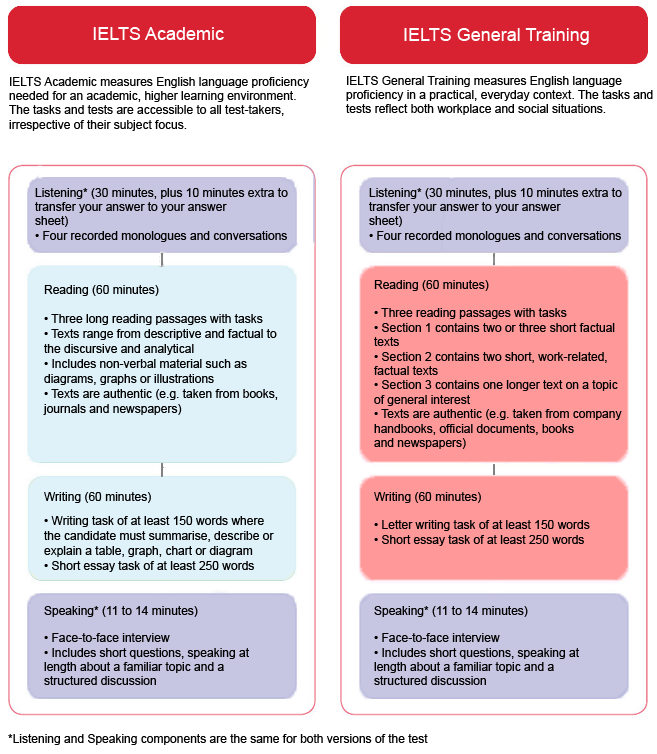
![]()
The first step is to make sure you understand the IELTS test format. You need to know what will be expected of you on test day.
Understand the IELTS test format
• Study the test format to make sure that you know what to expect.
• Look carefully at the content of each part of the IELTS test: listening, reading, writing and speaking.
• Get to know the different types of questions that you may be asked in each part.
- Take the time to understand the IELTS test format. There are two versions of the test: IELTS Academic and IELTS General Training. Both are graded in exactly the same way.
- You will take the first three parts of the test all on one day in the following order: Listening, Reading, Writing and Speaking. There are no breaks between the first three tests.
- You will take the Speaking test either on the same day, or 7 days before or after that, depending on local arrangements.
- A range of native-speaker accents (North American, Australian, New Zealand and British) is used in the Listening test, and all standard varieties of English are accepted in responses in all parts of the test.
Once you are familiar with the IELTS test format, you will need to undertake a number of focused preparation activities.
The first step is to make sure you understand the IELTS test format. You need to know what will be expected of you on test day.
Recommended preparation activities
• Examine our IELTS practice test papers and answers.
• Take practice tests under timed conditions.
• Practise with the British Council's IELTS online preparation resources, available free when you book your test with the British Council.
• Buy IELTS self-study books and materials.
• Consider taking an IELTS preparation course with the British Council.
• Review our IELTS test day advice.
Warning!
Some native English speakers are surprised to find that they score lower grades than non-native English speakers who have only been studying English for a few years. This can happen if you take IELTS unprepared. If you are a native English speaker and need to take IELTS to emigrate, make sure you prepare for the test!

When you are happy that you understand what you will need to do in each section, try some of our free practice tests.
![]()
![]()
Click Here To View All Our Office Locations
- E: info@ilearnpakistan.org
PARTNERS IN CHANGE
WORKING WITH US
GALLERY
Our Associates
Connect With Us













